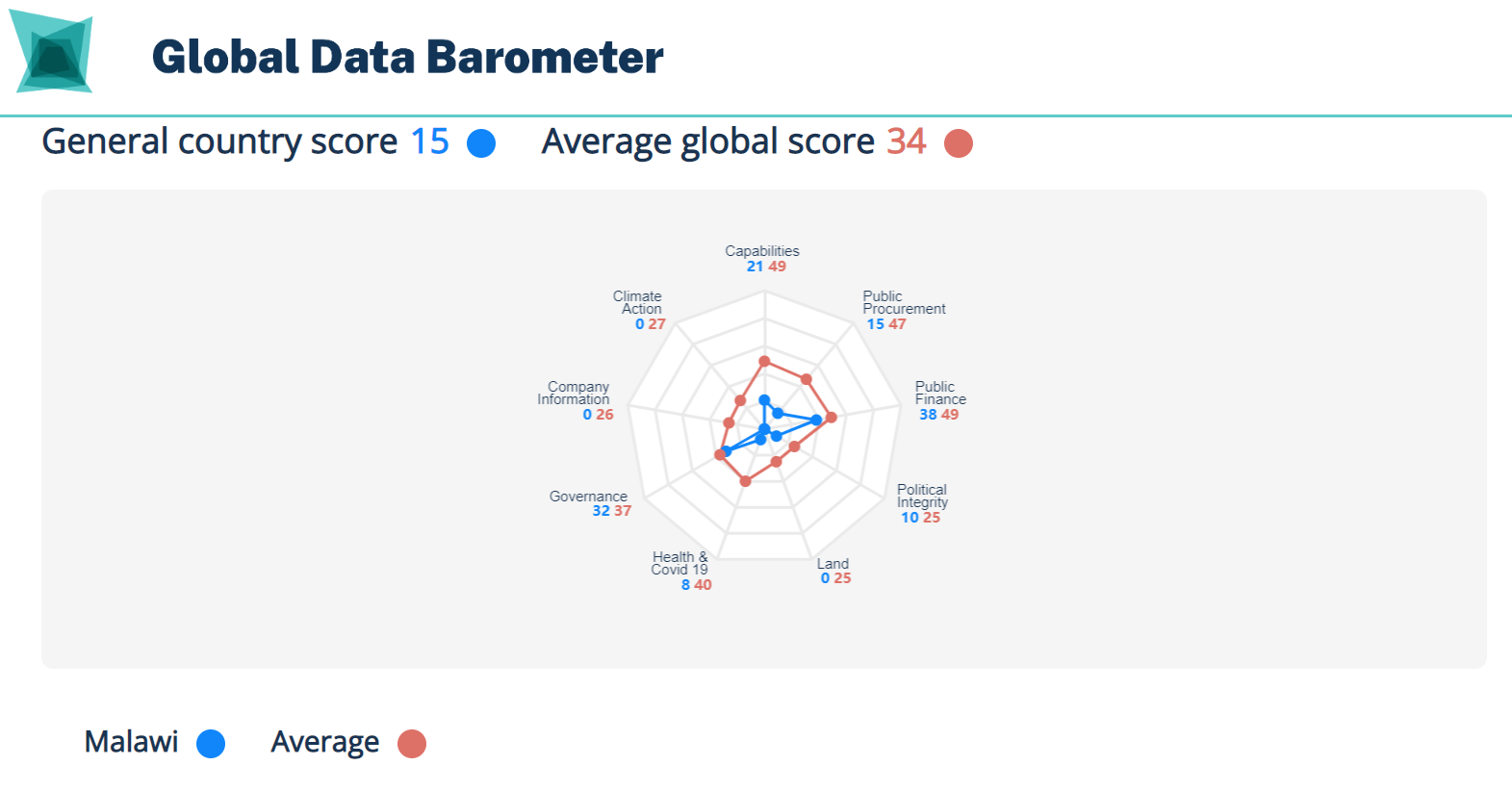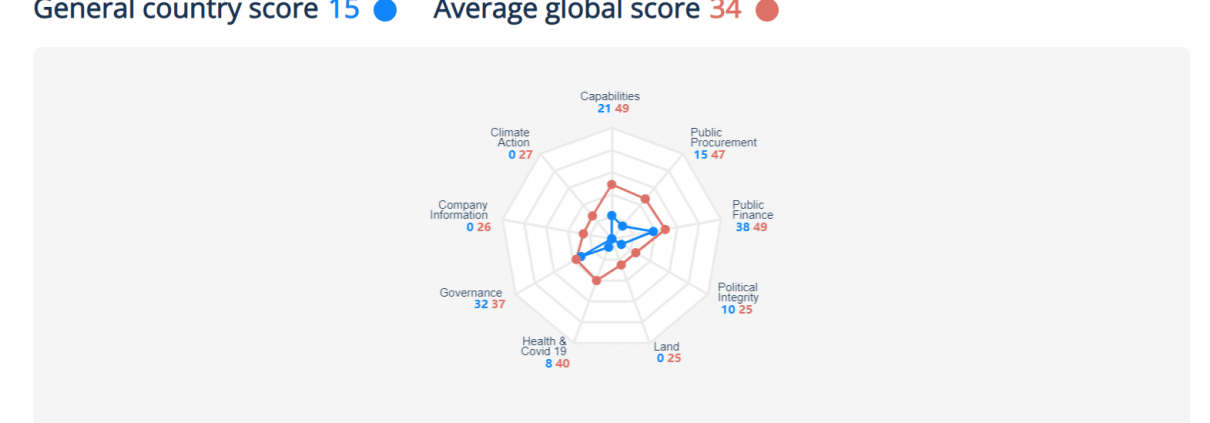Logos Open Culture presents Global Data Barometer results for Malawi at Data Symposium
Two weeks ago, Logos Open Culture’s Director Muti Etter-Phoya presented on the Global Data Barometer at the Data Symposium organised by MwAPATA Institute in collaboration with the National Planning Commission, National Statistics Office and the Ministry of Finance, Economic Planning and Development.
The Global Data Barometer sets a new global benchmark for tracking the extent to which data is governed, shared and used for the public good. This is because,
Data is a source of power. It can be exploited for private gain, and used to limit freedom, or it can be deployed for the public good: as a resource for tackling social challenges, enabling collaboration, driving
innovation and improving accountability.
The index assesses 109 countries across several thematic areas to respond to two key questions about data for public good:
- Is data of all forms (closed, shared and open) managed in ways that promote the public good?
- Is relevant data being collected, shared and opened to support particular wider public goods (health, education, sustainable development, justice etc.)?
Across the world, improvements can be made to update policy, improve capacity and
Logos Open Culture led the research for the Global Data Barometer in Malawi, which was released earlier this year. The team included Logos Open Culture’s directors Muti and Rachel, along with four other researchers from civil society and government. We worked with the regional hub in Kenya, the Local Development Research Institute’s Africa Open Data Network (AODN) Program.
The Global Data Barometer provides a rating rather than a ranking on the two core modules governance and capabilities and specific thematic areas including public procurement, beneficial ownership information, climate action, public finance, party financing and more.
Malawi in the Global Data Barometer 2022
Malawi’s overall score is 15 (from 100), this is lower than international average of 34, and close to Africa’s average of 19 points. A key challenge for Africa as a whole is to move beyond specific open data initiatives to embed these within government systems. According to the Global Data Barometer, in Africa there is
significant need for investment in data governance institutions, robust and comprehensive data infrastructures, and in fostering broad capabilities to manage and use data for the public good. However, significant opportunities exist for peer-learning to take progress on topics such as public finance data management and sharing, and to transfer learnings to other sectors such as data for climate action

Overall, Malawi must improve the legislative framework for data protection. As Jimmy Kainja, lecturer in media, communication and cultural studies, at the University of Malawi, writes
For Malawi, both the mandatory SIM card registration and mandatory biometric national ID registration have been implemented in the absence of supportive legislation. The country has a Data Protection Bill, 2021, which remains in draft form. The legislation gap has serious implications on personal privacy, which is protected under section 21 of the constitution of Malawi.
Malawi is making progress in introducing an open contracting system with associated open data to crack down on procurement fraud and the theft of public resources. And draft regulations for beneficial ownership disclosure are in the works at least for companies. More needs to be done.
Further areas to improve in Africa
The regional research hub, Local Development Research Institute, observed that across the board in Africa and this certainly applies to Malawi,
- There is little publicly available evidence of governments investing in the
data literacy skills in the civil service outside of statistical units or national
statistics offices; - There is significant fragmentation of content across agencies, ministry and
departments websites, making it difficult for the public and other stakeholders to find relevant data; - Government platforms in some countries lack easy ways of disseminating
information to a larger audience. - There appears to be a struggle with local governments when it comes to making data available and open to the public as the survey shows there has been minimal movement on the open data and open government front at regional or city levels.
- The absence of strong legal frameworks alongside new technological advancements seems to be a developing concern, particularly in countries where no frameworks exist to oversee the use of emerging technologies such as artificial intelligence.
- Much of the data we found through the field study was not tailored to ongoing analysis, nor did it appear to be linked to processes inside government that would keep it updated
You can watch Muti’s intervention at 5:32:00. And check out Malawi’s assessment here.
There’s clearly lots of work to be done, and as Logos Open Culture we are supporting especially institutions of memory, like the archives, to digitise and make data and information open for use.









